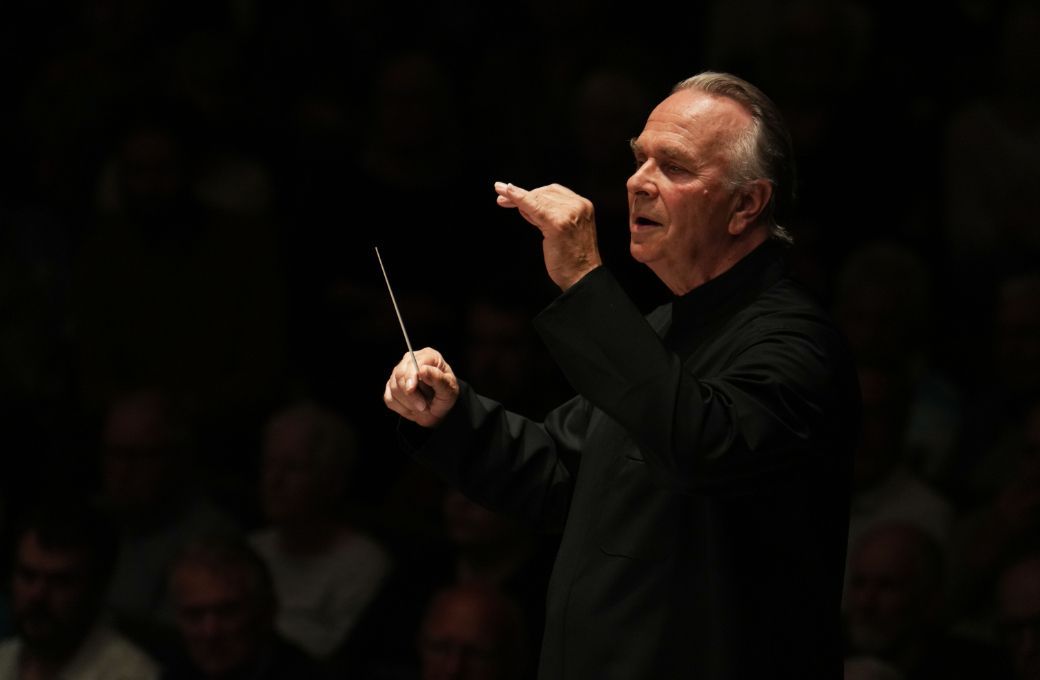Opening his final season as Music Director of Manchester’s Hallé, Sir Mark Elder led a captivated audience through Mahler’s final completed symphony, capturing every aspect of its epic voyage.
The huge number of patrons squeezing into the Stalls for Elder’s pre-concert talk served as a good barometer of the local enthusiasm for the outgoing MD, as did his final-act-of-an-opera reception onto the rostrum for the symphony. In his typically illuminating talk, Elder simply ad-libbed on the symphony’s background and meaning, noting astutely that whatever Mahler’s anxieties about his health were in 1909, he was not objectively suffering from any symptoms. Moreover, Elder proposed, the quotations from Kindertotenlieder point instead towards an elegy for the composer’s late daughter Maria, recently lost to scarlet fever, laying her to rest in the most sublime fashion.
If the endpoint of the Ninth Symphony was valediction, it began a world away in a searing account of the first movement’s triumphs and tragedies. Described as the composer’s “most extraordinary symphonic movement”, Elder mapped out his peaks and crevices with compelling clarity at a relatively stately tempo. The triumphant climaxes were huge, often reinforced with doubled crash cymbals, but this only served to heighten the overwhelming destructiveness of the ensuing catastrophes, the soundscape dissolving into despairing calamity. Notwithstanding the occasional wobble in ensemble, much of the music panned out with a mesmeric sense of musical oneness from the vast orchestral forces.
Tempos for the two inner movements were generally steady. In the second, this made for a pleasingly rustic Ländler, and gave the third a sense of grim inevitability. The sardonic anguish of the Scherzo was plain to hear, though it was only in the accelerando of the final pages that a real sense of wildness was embraced as the music careered dizzily into the buffers. The highlight in both movements was the exceptional quality of woodwind and brass playing. Amy Yule’s flute solos throughout were astonishingly good and there was much to admire in the trumpets’ momentary Scherzo glimpses ahead to the finale.

That finale belongs to the string section, who played with the softest touch imaginable, scarcely a rough edge in earshot while projecting a rich wooden warmth from the violas. In light of Elder’s comments on Mahler laying his daughter to rest in this music, the movement’s climax was overwhelmingly moving, bearing more than a passing reminiscence of Act 3 of Die Walküre.
Before thanking the sponsors at the beginning of the concert, the orchestra’s Chief Executive David Butcher suggested that this might be an “I was there” event; an hour and a half later, none present could disagree.


